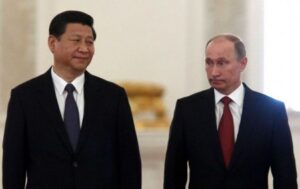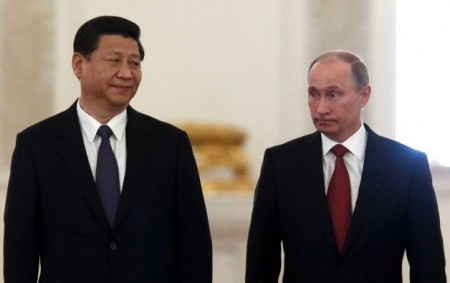 The world’s media is avidly following Xi Jinping on his maiden overseas trip as China’s new President. His journey takes him to Russia and Africa – where he will attend the BRICS* summit – whilst the situation in Tibet continues to deteriorate. In the few short months since Xi’s elevation to General Secretary of China’s Communist Party there has been a significant escalation in China’s hard-line response to the self-immolation crisis in Tibet, with an increased military presence and widespread and systematic detentions. A new campaign to “criminalize” family members of self-immolation protesters has led to ordinary Tibetans being threatened with “guilt by association” with numerous long prison sentences, including a suspended death sentence. These actions and China’s stepped-up anti-Dalai Lama propaganda are heightening tensions in Tibet. It seems reasonable to hold Xi responsible for this deterioration.
The world’s media is avidly following Xi Jinping on his maiden overseas trip as China’s new President. His journey takes him to Russia and Africa – where he will attend the BRICS* summit – whilst the situation in Tibet continues to deteriorate. In the few short months since Xi’s elevation to General Secretary of China’s Communist Party there has been a significant escalation in China’s hard-line response to the self-immolation crisis in Tibet, with an increased military presence and widespread and systematic detentions. A new campaign to “criminalize” family members of self-immolation protesters has led to ordinary Tibetans being threatened with “guilt by association” with numerous long prison sentences, including a suspended death sentence. These actions and China’s stepped-up anti-Dalai Lama propaganda are heightening tensions in Tibet. It seems reasonable to hold Xi responsible for this deterioration.
Now that his ascendance to Head of State is complete, Xi’s first Summit is also the first opportunity for high profile foreign leaders to express their concern about Tibet, appeal to him to lift the crackdown and address legitimate Tibetan grievances. The irony is that while this particular group of leaders potentially has more influence with China than the “usual suspects” (those who generally raise human rights concerns as a matter of course), they are also far less likely to utilise that influence. Certainly we have zero expectations of President Putin, and cannot see President Zuma jumping at the chance to raise Tibet, but perhaps President Rousseff and Prime Minister Singh are more likely candidates? Dilma Rousseff’s personal history as a political detainee and opponent of military rule in Brazil, and Manmohan Singh’s position as the government leader of the world’s largest democracy certainly suggest as much.
Therefore our request to President Rousseff and Prime Minister Singh is to grasp their courage in both hands (maybe they should even hold hands?) and join together to urge Xi Jinping to take up the challenge of seeking a just and lasting resolution to the situation in Tibet as a matter of some urgency.
[*Brazil, Russia, India, China and South Africa]

